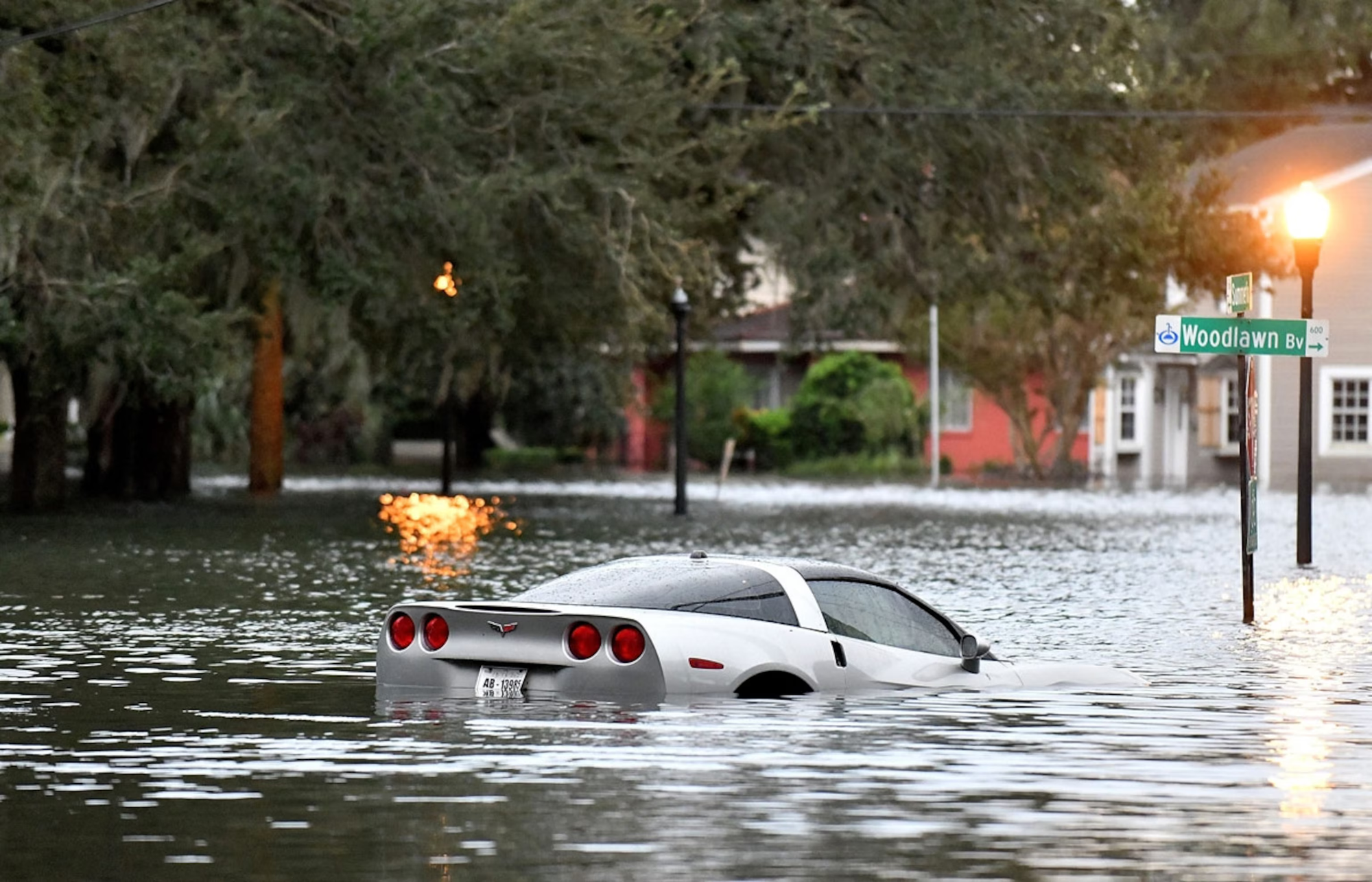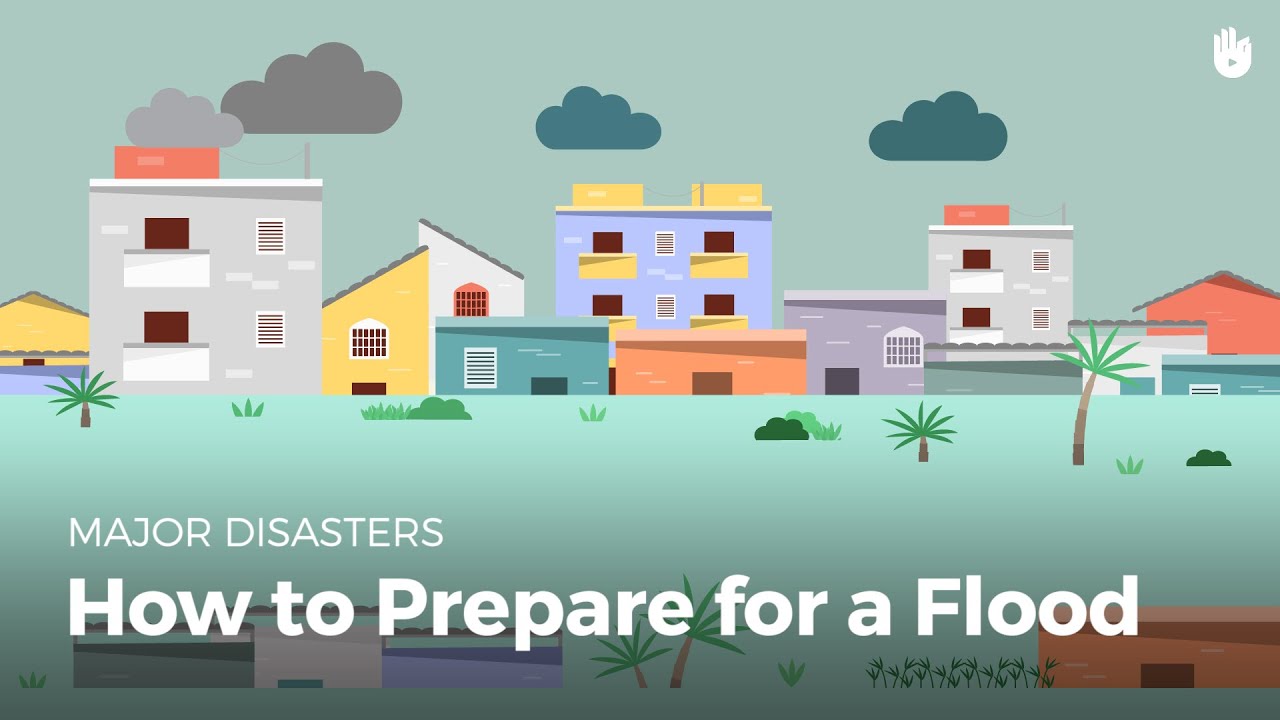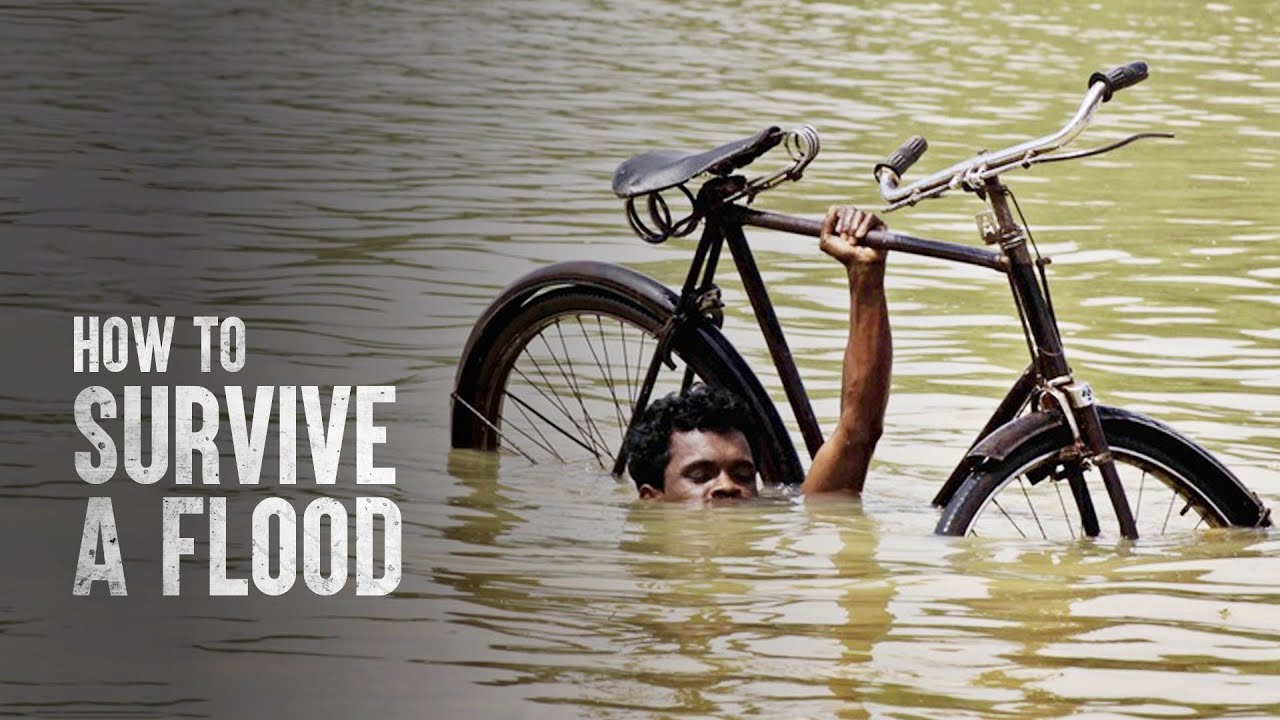NATURAL DISASTER-FLOODING

What is a Flood?
A flood is an accumulation or an overflow of an expanse of water that covers or inundates land that is usually dry.
Types of flooding include:-
- Riverine flooding. This usually occurs when a river overflows its banks. It is usually due to the volume of water within a body of water, such as a river or lake, exceeding its capacity and overflowing its banks. It can also occur when the velocity of the river is so high that it flows right out of the river channel, usually at bends.
- Coastal flooding. The sea can overflow or overtop flood defenses such as sea walls, perhaps due to a heavy storm (storm surge), a high tide, a tsunami or a combination thereof.
- Flash flooding. This is a flood that rises and falls rapidly with little or no advance warning. Flash floods usually result from intense rainfall over a relatively small area.
- Urban flooding this occurs as a result of land development. Permeable soil layers are being replaced by impermeable paved surfaces, through which water cannot infiltrate. This leads to greater runoff being generated, which can make rivers out of roadways and ponds out of car parks.
Causes of flooding:-
- Prolonged rainfall-rain that happens over a period
- Intense/heavy rainfall
- Relief –difference in height between the highest and lowest point on land
- Deforestation-lack of vegetation
- Poor land use practices-slash and burn agriculture · urbanization –leads to replacement of permeable soil
- Improper waste disposal-littering
- Quarrying –clearing of land for removal of aggregates
- Constructing new housing settlements without improving drainage systems
- Lack of maintenance of drains and waterways
Urban Flooding:-
Before floods
- Do not litter waste, plastic bags, plastic bottles in drains
- Try to be at home if high tide and heavy rains occur simultaneously
- Listen to weather forecast at All India Radio, Doordarshan. Also, messages by Municipal bodies from time to time and act accordingly.
- Evacuate low lying areas and shift to safer places.
- Make sure that each person has lantern, torch, some edibles, drinking water, dry clothes and necessary documents while evacuating or shifting.
- Make sure that each family member has ids stored in a waterproof bag or case.
- Put all valuables at a higher place in the house.
How to Prepare for a Flood | Disasters
During the flood
- Obey orders by government and shift to a safer place.
- Be at safe place and they try to collect correct information.
- Switch of electrical supply and don’t touch open wires.
- Don’t get carried away by rumors and do not spread rumors.
How to survive a Flood
Below are some do's and dont's to take heed of during a flood:-
DO’s
- Switch off electrical and gas appliances, and turn off services off at the mains.
- Carry your emergency kit and let your friends and family know where you are going.
- Avoid contact with flood water it may be contaminated with sewage, oil, chemicals or other substances.
- If you have to walk in standing water, use a pole or stick to ensure that you do not step into deep water, open manholes, ditches or animals.
- Stay away from power lines electrical current can travel through water, Report power lines that are down to the power company.
- Look before you step-after a flood, the ground and floors are covered with debris, which may include broken bottles, sharp objects, nails etc. Floors and stairs covered with mud and debris can be slippery.
- Listen to the radio or television for updates and information.
- If the ceiling is wet shut off electricity. Place a bucket underneath the spot and poke a small hole into the ceiling to relieve the pressure.
- Use buckets, clean towels and mops to remove as much of the water from the afflicted rooms as possible.
- Place sheets of aluminum foil between furniture wet carpet.
Don’ts
- Don’t walk through flowing water – currents can be deceptive, and shallow, fast moving water can knock you off your feet.
- Don’t swim through fast flowing water – you may get swept away or struck by an object in the water.
- Don’t drive through a flooded area – You may not be able to see abrupt drop – offs and only half a meter of flood water can carry a car away. Driving through flood water can also cause additional damage to nearby property.
- Don’t eat any food that has come into contact with flood water.
- Don’t reconnect your power supply until a qualified engineer has checked it. Be alert for gas leaks – do not smoke or use candles, lanterns, or open flames.
- Don’t scrub or brush mud and other deposits from materials, This may cause further
- Never turn on ceiling fixtures if ceiling is wet. Stay away from ceilings those are sagging.
- Never use TVs, VCRS, CRT terminals or other electrical equipment while standing on wet floors, especially concrete.
- Don’t attempt to remove standing water using your vacuum cleaner.
- Don’t remove standing water in a basement too fast. If the pressure is relieved too quickly it may put undue stress on the walls.
Comments




